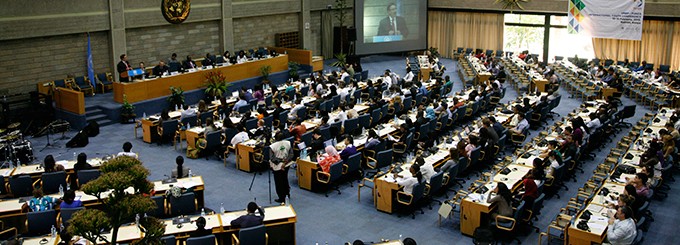Codex, Substantial Equivalence and WTO Threats to National GMO Labeling Schemes (Spring 1999) (Stilwell &Van Dyke) [TE99-3]
During 25-28 May, 1998 in Ottawa, the Codex Committee on Food Labeling will consider adoption of the “substantial equivalence” test as a Codex international standard for the labeling of products containing genetically modified organisms (GMOs). Under the substantial equivalence approach, a food product containing GMOs that exhibits sufficient resemblance to a traditional product can be … Read More.
